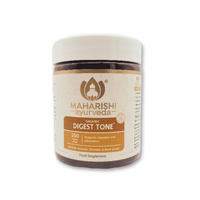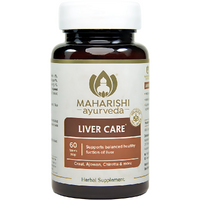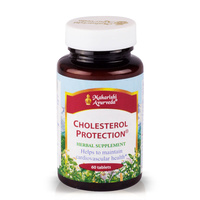The Lowdown on High Cholesterol
Date Posted:6 August 2013

When you hear the word cholesterol are you confused about what is “good” cholesterol and what is “bad” cholesterol? Or does it spur you on to do something to prevent or reduce high cholesterol?
People often think of cholesterol (a fatty acid that is mostly manufactured in the liver) as something bad, but in fact it is essential for the body to function properly.
“Good” cholesterol or high density lipoprotein (HDL) is used by the body to
- build and repair cell membranes,
- boost vitamin D production (controls calcium absorption, protects your bones and raises energy levels)
- insulate nerves
- form natural steroid hormones
- strengthen bile formation in the liver to lubricate and support the body’s channels that carry nutrients to the cells and waste matter away. Cholesterol helps these channels to retain flexibility, elasticity and to function smoothly.
- Drying out of these delicate channels can mean your brain doesn’t get enough oxygen leading to lack of focus, fatigue and even dementia.
“Bad” cholesterol or low density lipoprotein (LDL) can contribute towards the development of plaque in the artery walls, heart attack and stroke.
Maharishi Ayurveda understands this harmful cholesterol to be a result of toxins or improperly digested substances that circulate in the blood stream, clog channels (such as arteries), become oxidised and then create damage to the body.
Tips for Healthy Cholesterol
1. Take 1-2 tablets of Cholesterol Protection twice a day, along with 1-2 tablets of Digest Tone prior evening meal and at bedtime.
Cholesterol Protection is a nourishing blend of herbs that supports your body’s ability to do just that. It helps support proper liver function, balance bile secretion and normalize the total cholesterol levels in your blood. Along with eating a low-fat, high-fibre diet, Cholesterol Protection gives you the extra help you need.
2. Reduce intake of harmful fats
- Fats that are hard to digest include saturated fats found in meat, butter and vegetable oil.
- Transfats or hydrogenated vegetable oils are even harder for the body to process and are found in almost all packaged, processed and fast foods.
- Overheating fats can also cause them to be damaging due to oxidization.
- Most vegetable oils are processed with too much heat, thereby destroying their nutritional value.
- Polyunsaturated oils such as corn, safflower and sunflower create free radicals and contribute to oxidized lipids that cause LDL (“bad” cholesterol)
3. Favour healthy fats
- Maharishi Ayurveda recommends ghee and olive oil. Ghee is clarified butter which is made by separating out the milk solids by gently heating the butter. The clear, pure fat that is left can be heated to high temperatures without destroying its natural qualities. Ghee provides the essential fatty acids that cannot be created by the body and need to be obtained from food. Ghee contains short-chain fatty acids which are more easily metabolised by the body as opposed to long-term fatty acids which do not get completely digested. Ghee also contains a large percentage of mono-saturated fat, which has been associated with prevention of heart disease and cancer.
- Olive oil is also a mono-saturated fat but it is important that it is extra virgin and over-heating it must be avoided. Extra virgin olive oil means that the oil is pressed from oil without heat and therefore retains its nutritional qualities. Olive oil may be used for baking, on salads or for sautéing spices and vegetables at a low heat.
4. To ensure healthy fat metabolism reduce heavy foods, eat lightly in the evening and do not over eat – eat until you are 2/3rd full.
5. Look after your liver. Consider taking Liver Care to help strengthen and purify the liver to support healthy metabolism of fats.
We have one main agni (digestive fire) which governs the digestion in the stomach and small intestine but we also have agnis in our liver and tissues. The agnis in the liver scan and identify toxins. When the liver is healthy they are able to eliminate ama or toxins and prevent them from passing into the rest of the physiology.
However if the liver is overloaded its ability to screen and eliminate ama is weakened. That is why merely increasing bile production using medication is not enough to lower cholesterol because it does not replace the liver’s vital function of getting rid of damaging toxins. If the liver is overloaded then supplementing with Liver Care can be beneficial in helping to reduce cholesterol levels.
6. Kapha balancing regime
When cholesterol is high, a Kapha Pacifying Diet of bitter foods such as leafy greens, fenugreek and turmeric is recommended. Favour whole grains such as barley, quinoa, amaranth and whole oats as well as broccoli, cauliflower, pears and apples. Avoid sweet, sour and salty foods and too much dairy product.
7. Kapha’s sluggishness is offset by regular exercise, early rising and small amounts of spices in your diet. Try the Kapha Balancing Seasonal Spice Mixture for a tasty treat that is also good for you!
Healthy, happy eating!
The Get Balance Team
Related Products

Digest TONE Organic (Large - 250 Tablets)
MA505B
$149.95

Liver Care
MA3579
$66.95

Cholesterol Protection
MA1596
$46.95

Digest TONE Organic (Small - 60 Tablets)
MA505
$41.95


